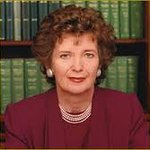Responding to the new report from the world’s foremost scientific authority on climate change – the Intergovernmental Panel on Climate Change (IPCC) – Mary Robinson, Chair of The Elders said:
“Leaders must show they understand the seriousness of the science and turn in stronger national commitments ahead of the COP26 climate talks this November. The big question leaders must reckon with in Glasgow is whether these plans add up to what is needed – and if not, how they will close the remaining gap.
“To those who seek to argue that it’s too hard, or too late, and so not worth trying – the report is a reminder that every fraction of a degree of warming really does matter. The level of climate ambition has never been greater than it is right now and there is still everything to fight for. Governments must do all they can to prevent the 1.5C window shutting.”
This, the first of the IPCC’s three-part 6th Assessment report, places a greater emphasis on solutions than previous reports and provides invaluable input into government decision-making ahead of COP26.
Ricardo Lagos, former President of Chile and member of The Elders said:
“The science we are hearing today is extremely worrying. But the good news is we know what the solutions are and those solutions are getting cheaper and more accessible. With the right kind of post-pandemic investment, we can tilt the economy towards a green recovery, create jobs, and bring us back to a path of climate safety.”
The new report covers the huge advances in scientific knowledge on changes in extreme events and attribution of these events to man-made climate change. In response, Ellen Johnson Sirleaf, former President of Liberia and member of The Elders said:
“As this week’s IPCC report indicates, attribution science has advanced to the point where we can now look at extreme weather events and know which were intensified by global warming. We see the climate crisis already unfolding before our eyes and for people in the Global South this is an emergency we are already living through. As the scientific evidence mounts, so too does the need to address the concerns vulnerable countries are raising around loss and damage, and adaptation finance. The science is robust, the response to this environmental and human rights emergency needs to be just as solid.”






